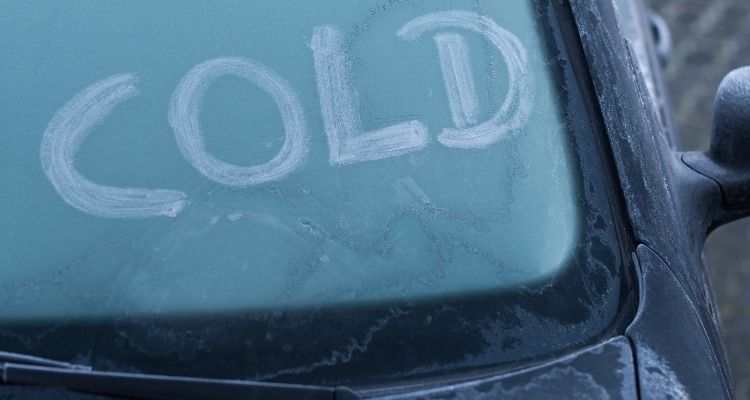Does My Car Have a Black Box?
The black box. You have probably heard of it in reference to airplanes usually, unfortunately, after the plane has crashed. Perhaps you are wondering if there is such a thing as a land vehicle black box — specifically, do cars have black boxes? Here’s what you need to know.
What Is a (Car) Black Box?
The event data recorder (EDR), colloquially known as the “black box,” is a recording device made from an extremely durable and crash-resistant material. The point of the device is to record the moments leading up to an accident to help investigators determine the cause so that they can avoid similar events in the future. It has long been a vital part of airplane equipment and, yes, it is now found in cars as well.
Does My Car Have a Black Box? How Would I Know? Where Is It?
If your car is a model from this century, there’s a fair chance you do indeed, have a black box fitted somewhere within it. Black boxes have been in some of the major American car brands, like Buick, Chevy and Cadillac, since all the way back to 1994. The National Highway Traffic Safety Administration has been using them to collect car accident data since early in the 2000s. If your car is from 2013 or later, you are almost guaranteed to have a black box. Less than 5 percent of new cars came without one in 2013, and they are mandated in all new vehicles since 2014.
If your car is from before 2014 and you’re not sure whether or not you have a Black Box, check out this list. If your car is not on it and is not a 2014 or later model, you can assume you do not have a black box.
So, if you do have one, where is it? It is probably located behind your steering wheel and dashboard, but this will not really help you. It is not designed to be easily accessed, and there is no way to turn it off. The only person who will interact with it is whoever plugs into the connections to read the data.
What Does the Black Box Record?
Who is it that will be plugging into your vehicle’s black box? That depends. The stated purpose of the Black Box in your car is to prevent future crashes, just like with airplanes. The Black Box depicts data such as how fast your car was going, the position of the throttle, brake application, airbag deployment, seatbelt use, steering angles and a range of other factors as they were about 20 seconds before, during and 20 seconds after the crash. Collecting this information can help the vehicle manufacturer know if the crash was caused by a preventable human error or a mechanical failure in their system.
Why Does My Car Have a Black Box? Who Has Legal Access To Black Box Information?
The issue some car owners struggle with is the idea that others could use this information in ways that may not necessarily benefit the owner, such as the police when investigating the accident or the insurance company when adjusting your claim. Isn’t the data on the Black Box personal and private information that only you or those you authorize have access to?
This is an issue that is in question. It’s not possible for just anyone to access your Black Box data. You need a crash data retrieval system that can cost as much as $20,000, and you need to plug it into the onboard diagnostic port under your dashboard. Your car’s manufacturer has access to this equipment as does the National Highway Traffic Safety Administration and law enforcement. But can they legally get access to this data at any time?
There’s no clear answer to this question. There are only fifteen states that have specific laws about who and when entities can pull crash data recorder information from your car. In these states, for anyone to access this data without your permission, they must obtain a court order. Insurance companies are not allowed to use the data to set your rates unless you give them your consent.
You might do this and get what is called telematic insurance if you are in a particularly high-risk group, and it could result in a lower rate. In the states where there are no clear laws on the books, you may have to put up a fight to keep your data private.
If someone does come with a court order, there is little you can do. You cannot delete the recording, disable or turn off the box. You could put a lock on the diagnostic port, but with a legal court order, law enforcement could force you to remove it.
Keep in mind that for the most part, the black box is there for your benefit and your protection. If you get into an accident that is no fault of your own, the data could potentially help you prove your lack of liability. It could also provide valuable information about your car that could help prevent similar accidents in the future.
You may want to visit the National Conference of State Legislatures to see your state’s specific laws regarding the black box. These laws will probably evolve as more cars on the road end up having a black box and methods of data collection and analysis improve, but it can be a good idea to know where you stand with your car data right now. You should know who can look at that data in the event of a crash, who is likely to gain access to that data as well as the extent of your ability to deny them access to that data if you feel this is necessary.
For information about taking the best care of your car with reliable oil supplement, coolant supplement and radiator flush products — black box or no black box — contact Hy-per Lube today. Or, if you want to see what we’ve been selling everyday drivers, race drivers and auto enthusiasts for over five decades, check out our new product lineup.




